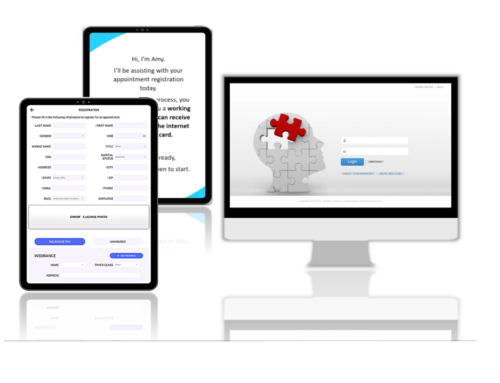Imagine a patient goes to a hospital or other healthcare provider facility. Their first point of contact is the registration desk. The patient’s information will be put into the system or is already in the system, depending on if they are a new or existing patient. This is one information system containing all patients’ healthcare information, personal information, medical history, etc.
Then, as you are probably familiar with, this information is transferred to different information systems who also require it. For example, the information could be viewed in a Hospital Information System (HIS) and needed by radiology. Then, this information is sent to the Radiology Information System (RIS). It is important for all parties involved to be able to access all the patient information they will need in order to provide the best care for patients.
All sorts of users need medical information including clinics, hospitals, imaging centers, labs, etc. When different facilities and individuals involved in the care of a patient require the patient’s medical and personal information, it becomes very important that this information can be exchanged efficiently and correctly. More generally, this ability to transfer and make use of information between different systems is know as interoperability.
What Are Some Benefits of Interoperability?
Interoperability, especially in today’s digitalized world, can help improve efficiencies and reduce errors. When the healthcare information is in a digitalized format that can be easily sent and received by different users, it can be exchanged quicker than non-digitalized information. Additionally, when there are multiple healthcare providers involved in a patient’s treatment plan, then this information can be sent to all who use it in order to provide a safer and accurate transition of care. Receivers of the information can get it and use it in a timely manner.
Furthermore, this form of communication between systems can help provide the necessary information a physician needs even when a patient cannot provide it themselves. If a patient is not able to, or maybe even sometimes forget to, provide certain information, physicians will still be able to have access to the information from a previous provider, for example. Moreover, if a patient forgets previous test results, having this information exchanged between providers will take away needs for redundant tests or maybe booking another appointment in the future when the patient remembers to bring the results.
All in all, with these improved efficiencies, time and cost can potentially be reduced in the process as well. This can not only help the patients, but it can help your healthcare facility as well. It can help staff share information quicker and with more accuracy, it can help reduce time spent trying to get information, and overall improve the quality of care provided for patients.
Are There Any Challenges With Healthcare Exchange Currently?
One challenge with the exchange of medical information is the existence of various types of information systems in the healthcare industry. For example, as mentioned above, there is the HIS and the RIS. However, there are many more systems used by the different parties involved. A lab may have a different information system than a clinic, for example. Or, a hospital may have a different system than a primary care physician. These different systems may read information differently or send it differently. This calls for a need in standardizing the information that is being shared.
Additionally, there may be challenges related to factors such as the costs of implementing a system within your facility or to the security of storing and sharing patient information. Different measures can be taken to protect patient information, and ultimately it is up to your facility to decide what is the right move based on the current circumstances that you practice in.
The exchange of healthcare information has its pros and cons, but it is definitely a relevant topic in today’s technological and information-heavy world. Interoperability and the transfer and use of health information is something that affects many different individuals. We are also working to make processes more efficient and effective for our clients, all while ensuring the most secure protocols and HIPAA compliant practices when handling medical information. To learn more about what we do and how we can help, contact us today!




